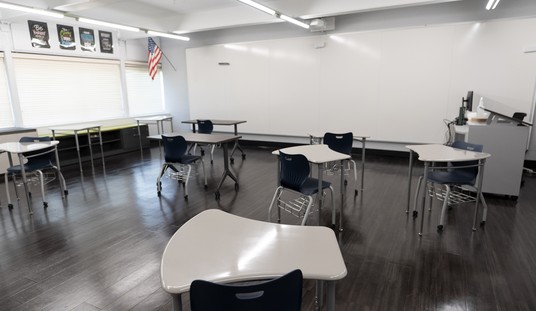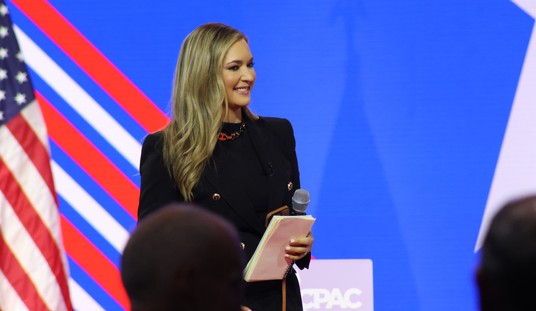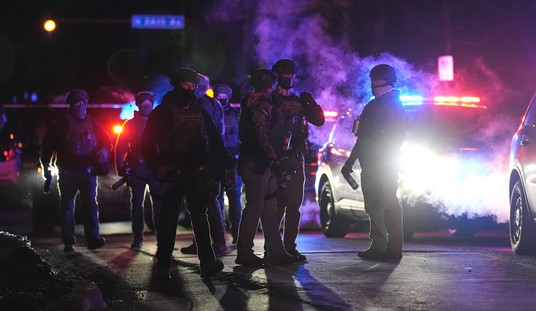President Barack Obama’s incremental strategy on the Ukraine crisis marched forward Monday — but so did Russian President Vladimir Putin, without appearing to notice.
Through targeting the bank accounts of 11 Russian and Ukrainian government and business leaders, the administration hopes the pressure on the so-called “cronies” — as administration officials repeatedly called them Monday — will get through to Putin himself.
But though the sanctions are the most aggressive any American president has taken against Russia since the end of the Cold War, they’re going to take a while to be felt, and even then, it’s an open question of how much the people targeted by them will care. White House officials haven’t laid out what happens if Putin doesn’t back down — and the options aren’t great.
“Going forward, we can calibrate our response based on whether Russia chooses to escalate or to de-escalate the situation,” Obama said Monday at the White House, announcing the latest actions.
***
U.S. senators, congressmen and top Obama administration officials are sure to be on Vladimir Putin’s sanctions list; a response to the Obama Administration’s announcement on Monday that 7 Russian officials and 4 Ukrainian officials would be barred from holding assets or traveling to the United States.
Putin is expected to release his retaliation list as early as Tuesday and while the final list is still being crafted, it will include top Obama administration officials and high profile U.S. senators, in an effort to roughly mirror the U.S. sanctions against Russian officials and lawmakers, according to diplomatic sources. At the top of the list in Congress is Senate Majority Whip Dick Durbin, who recently co-authored a resolution criticizing Russia’s invasion of Crimea.
Durbin’s inclusion on Putin’s list would mirror Obama’s naming of Valentina Matvienko, the head of the upper chamber of the Russian Duma. Senate Majority Leader Harry Reid and Minority Leader Mitch McConnell are not expected to be on the Russian sanctions list.
***
In short, America’s adversaries are testing the limits of America’s post-Iraq, post-Afghanistan moment.
“We’re seeing the ‘light footprint’ run out of gas,” said one of Mr. Obama’s former senior national security aides, who would not speak on the record about his ex-boss.
“No one is arguing for military action, for bringing back George Bush’s chest-thumping,” the former aide said. At the same time, he said, the president’s oft-repeated lines that those who violate international norms will be “isolated” and “pay a heavy price” over the long term have sounded “more like predictions over time, and less like imminent threats.”
Mr. Obama acknowledges, at least in private, that he is managing an era of American retrenchment. History suggests that such eras — akin to what the United States went through after the two world wars and Vietnam — often look like weakness to the rest of the world. His former national security adviser Thomas Donilon seemed to acknowledge the critical nature of the moment on Sunday when he said on “Face the Nation” that what Mr. Obama was facing was “a challenge to the post-Cold War order in Europe, an order that we have a lot to do with.”
***
Putin has played on western illusions very successfully for a very long time. Remember all those ‘experts’ (many, alas, in government service) who thought that the Medvedev presidency represented a real shift in Russian politics? How shocked and disappointed people were when Putin stepped smoothly back into the top job? It is the oldest trick in the book: bait and switch. Humiliate John Kerry by making him cool his heels for three hours in the Kremlin, and then dangle hope of a cooperative relationship. Hold out a ‘helping hand’ when the Obama administration has gotten itself into an embarrassing predicament over its Syria red line, then kick Uncle Sam in the teeth at Geneva.
There was never a good reason to believe any of Putin’s talk of peace and cooperation. After the Cold War, America and its allies jammed NATO expansion down Russia’s throat. The European Union worked to expand right up to Russia’s frontiers while making it crystal clear that Russia could never be a member. Putin is no Hitler, but neither is he a Konrad Adenauer, determined to accept defeat and to cooperate wholeheartedly in building his country’s future within the lines drawn by the victors. And the US made Adenauer’s Germany a much better offer than it made Putin’s Russia. You would have to be living in what the Germans call das Wolkenkuckkucksheim, cloud-cuckoo-land, to believe that a man like Putin would passively accept the post-Cold War order.
***
Russia will regret its anti-Western turn because the (genuine and huge!) improvements in the country’s economic situation over the past 15 years have only been possible because the country was increasingly becoming seen as a “normal” country in which it was possible to invest and do business. Russia wasn’t perfectly integrated into the world economy, but in 2014 it is much more integrated than it ever was during the chaotic 1990′s or the “good” years of Putin’s first term as president. Russia’s trade with the EU exploded over the course of the past decade, and while the results of economic growth haven’t been evenly shared, huge numbers of Russians have been able to partake in a consumer lifestyle that increasingly resembles the West’s.
The growth of this consumer lifestyle depended not on government to government ties, even at their post 9/11 peak Russia and the West were highly suspicious of each other, but on the gradual development of organic connections between people and businesses. These sorts of connections can be very hard to form, but are exceedingly easy to break. As shown by the carnage in the Russian stock markets, Russia’s invasion of Crimea seems to have convinced an awful lot of people that Russia is not a particularly good place to invest in.
***
As U.S. and European officials began imposing sanctions in their face-off with Russia over Ukraine, Vladimir Putin’s $160 billion in oil and natural gas exports may be his most potent weapon to limit punitive measures. …
Russia, the world’s largest oil producer, exported $160 billion worth of crude, fuels and gas-based industrial feedstocks to Europe and the U.S. in 2012. While shutting the spigot on Russian energy exports would starve the Moscow government of essential flows of foreign cash, the price may be too high for European consumers and it may not alter Putin’s plans, said Jeff Sahadeo, director of Carleton University’s Institute of European, Russian and Eurasian Studies.
Abstaining from Russian oil and gas would be “off the table” for Europe, said Marc Lanthemann, Eurasia analyst with Stratfor, a geopolitical intelligence company based in Austin, Texas. Europe risks a replay of its failed attempt six years ago to punish the Kremlin for going to war with the Republic of Georgia, when it was unable to impose sanctions after acknowledging its dependence on Russian energy.
“We’re not expecting sanctions with many teeth coming through,” Lanthemann said.
***
Should Putin choose to escalate by moving troops into Ukraine beyond Crimea, even Germany has pledged to hit Russia with painful sanctions. This would damage the economy seriously: Former Russian Finance Minister Alexei Kudrin has forecast $50 billion in capital flight per quarter this year, “in a mild scenario.”
And yet, sanctions too can add to the logic of escalation. Serious economic sanctions would, as the most fervent Soviet die-hards and Russian nationalists have been hoping ever since the 1990s, create a full break with the West and return Russia’s economy to a less extreme version of its Soviet-era isolation — or, in their view, self-sufficiency. Sanctions would also force corrupt businessmen either to repatriate their ill-gotten gains or flee the country. The “liberals” who have, according to conservatives, held the country ransom for private gain since the collapse of the Soviet Union and prevented Russia’s return to greatness would be routed.
The West would then have done its worst, while proving that it is unwilling to go to war with Russia in order to prevent Putin from sending troops into his non-NATO neighbors. Any future land grabs would incur smaller additional costs for Russia.
***
Several members of Congress voiced support for sanctions against Russian leaders announced by President Obama earlier today, but urged him to go further to deter Russian President Vladimir Putin from taking further steps to annex Crimea and take the region from Ukraine.
The sanctions, announced Monday morning, freeze the assets of seven Russian officials and four of their allies in Ukraine’s Crimea region. The action by the Obama administration was praised by several members of Congress, while others blasted the sanctions for not going far enough. “The crisis in Ukraine calls for a far more significant response from the United States,” declared Sen. John McCain (R-Ariz.), in a lengthy statement released Monday afternoon. “Today’s Executive Order could be an important part of that response, but sanctioning only seven Russian officials is wholly inadequate at this stage.”
Without stronger U.S. and Western reaction, McCain said, “we run the risk of signaling to Putin that he can be even more expansive in furthering his old imperial ambitions, not only in Ukraine, but also in Central and Eastern Europe, the Baltic countries and parts of Central Asia.” McCain urged the Obama administration to “rush the modest military assistance to the Ukrainian government that its leaders have requested.”







Join the conversation as a VIP Member